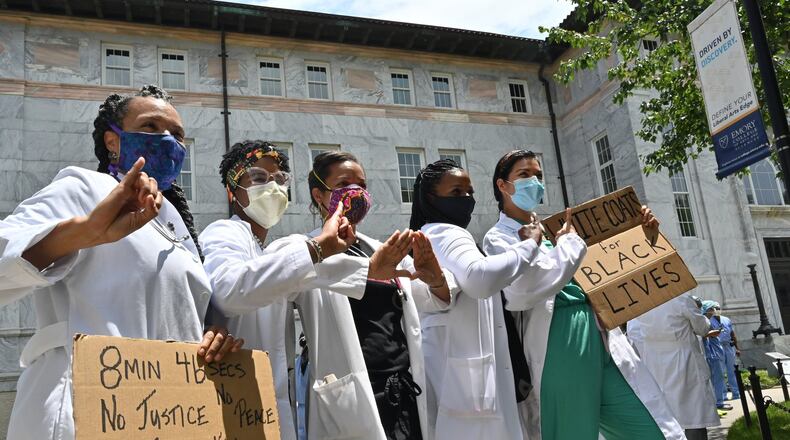During this COVID-19 pandemic, systemic racism has been brought to the forefront in many aspects of society.
On Monday, May 25, 2020 George Floyd was murdered after a police officer pinned him down at the neck for nearly 9 minutes. “I can’t breathe, I can’t breathe” he screams, reminiscent of Eric Garner’s and unfortunately so many others’ last words. Déjà vu, but yet I never become desensitized. The killings of Ahmaud Arbery and Breonna Taylor months earlier and now Rayshard Brooks adding to the body count and senseless loss of lives. The invisible is now visible. Because of technology, we are now seeing these egregious acts of violence emphasizing the need for change in America.
It is difficult to be a person of color in this country when your life is not valued. As a physician and a person of color, as any human with a soul, I am hurting and I am grieving. We are hurting and we are grieving. We are struggling to breathe! In this time of shared suffering and solidarity, we need hope and we need to heal.
When will America stand up?
First COVID-19 and now it’s the color of our skin. America is in denial and its silence and inaction is an injustice. As a society, we are reactive. We don’t have to stop grieving each time these racial atrocities and police brutalities occur but we must stop being reactionary and start being proactive. We need collective action in our communities and even in healthcare.
We all must speak out against these injustices. Let’s advocate for safety and justice for our communities. All communities, black, brown, white and every race and ethnicity in between should stand together. Black and brown people cannot do it alone.
We know the problem. Let’s discuss solutions. Maybe George Floyd’s death is the catalyst we need for change. You’re either a racist or an antiracist. No longer can members of the majority watch idly as if it doesn’t affect you; it does affect you. It affects all of us.
In fact, racism is a public health crisis. Structural racism is the origin of many health-related issues both physical and mental health-related, such as hypertension, depression and post-traumatic stress disorders. In persons of color, we see it manifested in our increased rates of maternal mortality, especially in blacks, inequities in healthcare access, heart disease, still-higher death rates and lower survival in those stricken with most cancers and recently the disproportionate rate of death in those suffering from COVID-19. We are even seeing inequities in our medical educational systems where our future health professionals work and learn. In all of these cases, racism is still pervasive and we must be a voice to the voiceless.
So how do you change these conversations into accountability?
Well, we need action and we need change. We need restructuring of our judicial system. We need restructuring of our educational system. We need restructuring of our healthcare system.
Some say we don't see color. We love all people but that is simply not true. We all can't help but to see color if we are not blind, the difference is that we don't all assign a value to it.
George Floyd’s death has spoken new life into a movement – and I can only hope and pray that this is a true tipping point in American history.
Tracey L. Henry, M.D., is an assistant professor at Emory University School of Medicine. The views here are are her own.
About the Author
Keep Reading
The Latest
Featured


